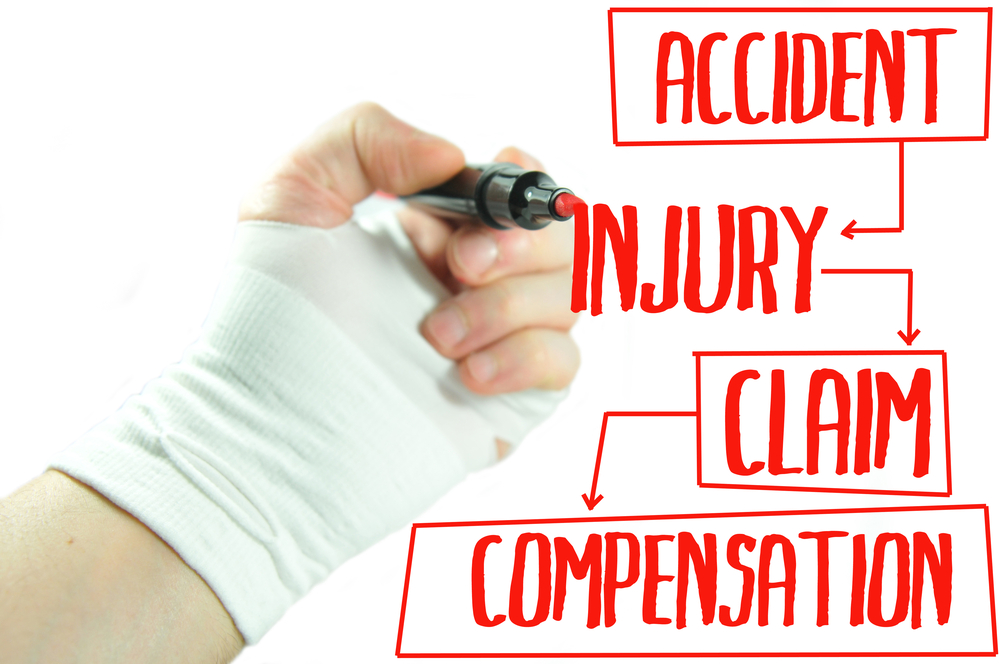Workers’ Compensation is a form of insurance. So long as your employer has three or more employees or you work in the construction industry, your employer is required to have a Workers’ Compensation insurance policy for the protection of their employees.
If you are injured at work or on the job—or become sick as a result of an on-the-job exposure, then you should be covered by your employer’s Workers’ Comp insurance and entitled to Workers’ Compensation (or, “Workers’ Comp”) benefits.
What happens when a WC insurance adjuster denies your claim for Workers’ Comp?
The purpose of New Mexico’s Workers’ Compensation Act is to provide Injured Workers with medical and indemnity benefits in a timely and efficient manner, and to help Injured Workers return to work.
- But many WC adjusters just want to delay or deny treatment.
- So how are you supposed to go back to work?
The attorneys at the Buchanan Law Firm, LLC., can help you with your Workers’ Compensation claim. Our attorneys take great pride in representing Injured Workers and have a combined thirty years of experience in Employment Law and Workers’ Compensation. We can help if you have been denied Workers’ Compensation benefits.
How do I get Workers’ Comp?
You have to make a claim against your employer’s Workers’ Comp insurer. But first, you’ll have to give your employer notice of your injury or illness. And unless your Employer actually saw you get hurt, then you’ll have to give written notice of your accident.
Don’t wait to give notice!!
If you don’t give notice in a timely fashion, you may be denied Workers’ Comp benefits! The New Mexico’s Workers’ Compensation Act requires Injured Workers to give written notice of a claim for Workers’ Comp benefits “within 15 days after the Worker knew, or should have known, of its occurrence, unless, by reason of his injury or some other cause beyond his control, the worker is prevented from giving notice within that time, in which case he shall give notice as soon as may reasonably be done and at all events not later than sixty days after the occurrence of the accident.” NMSA § 52-1-29 A.
The State of New Mexico Workers’ Compensation Administration has a standard Notice of Accident form that employers are required to post in a conspicuous place and provide for their employees to use. The Notice advises Workers of the 15-day notice requirement and includes a pre-printed form on which an Injured Worker can briefly describe the accident and sign their name.
If your employer does not have a Notice advising workers of the 15-day notice requirement, then you still have to give notice of your on-the-job injury or illness, but you may up to 60 days in which to give written notice.
The attorneys at the Buchanan Law Firm, LLC., can help you navigate the Workers’ Comp system and can represent you if you’ve been denied Workers’ Comp benefits.
Making a Claim: It’s Not the Same as Filing a Workers’ Compensation Complaint
If you are injured in a work-related accident or become sick as a result of your job, then your employer (or their Workers’ Comp insurer) must pay for all of your reasonable, necessary and causally-related medical costs.
If you need to see a doctor or miss work as a result of an on-the-job injury or illness, you’ll need to contact your Employer’s Workers’ Compensation Insurance Adjuster. Your Employer’s Human Resources Department should provide you with the Workers’ Comp Adjuster’s contact information. When you contact the Workers’ Comp Adjuster for approval to see a doctor you are making a claim for Workers’ Comp benefits.
If your doctor, or authorized Health Care Provider, says that you cannot return to work and you miss work as a result, then you may be entitled to indemnity benefits. Indemnity benefits are money payments that are intended to partially offset your lost wages. However, there is a “waiting period” and no Workers’ Comp benefits are owed unless you’re unable to work for more than seven, consecutive days. If you’re unable to work for more than four weeks, then Workers’ Comp indemnity benefits will be paid retroactively, from the first date you were unable to work.
To make sure that you are receiving the correct amount of indemnity benefits, contact the attorneys at the Buchanan Law Firm, LLC. If you are being denied medical treatment or indemnity benefits, our attorneys can file a Complaint on your behalf with the New Mexico Workers’ Compensation Administration.
What if the Workers’ Comp doctor, or authorized Health Care Provider, wants to send you back to work before you’re ready?
If the authorized Health Care Provider released you to return to work and your employer offers you work at the same level of compensation and within your restrictions, then you will very likely have to return to work.
However, you may be able to change your authorized Health Care Provider.
In New Mexico, your employer has the right to make the initial selection of authorized Health Care Provider but may allow you to choose your doctor first
Be careful, because they’re not doing you any favors!
After sixty days the party who did not make the initial selection of Health Care Provider may select a health care provider of their choice.
What does that mean?
It means that if you made the initial selection of Health Care Provider, or are deemed to have made the initial selection, then the Workers’ Comp carrier can change your health care provider after sixty days.
If your employer or their Workers’ Comp insurer has not given you written instructions about who made the initial selection of health care provider, contact the attorneys at the Buchanan Law Firm, LLC. We may be able to help you change your authorized Health Care Provider. We are familiar with the medical providers who accept Workers’ Compensation insurance throughout the state of New Mexico, and can help you know what to expect!





